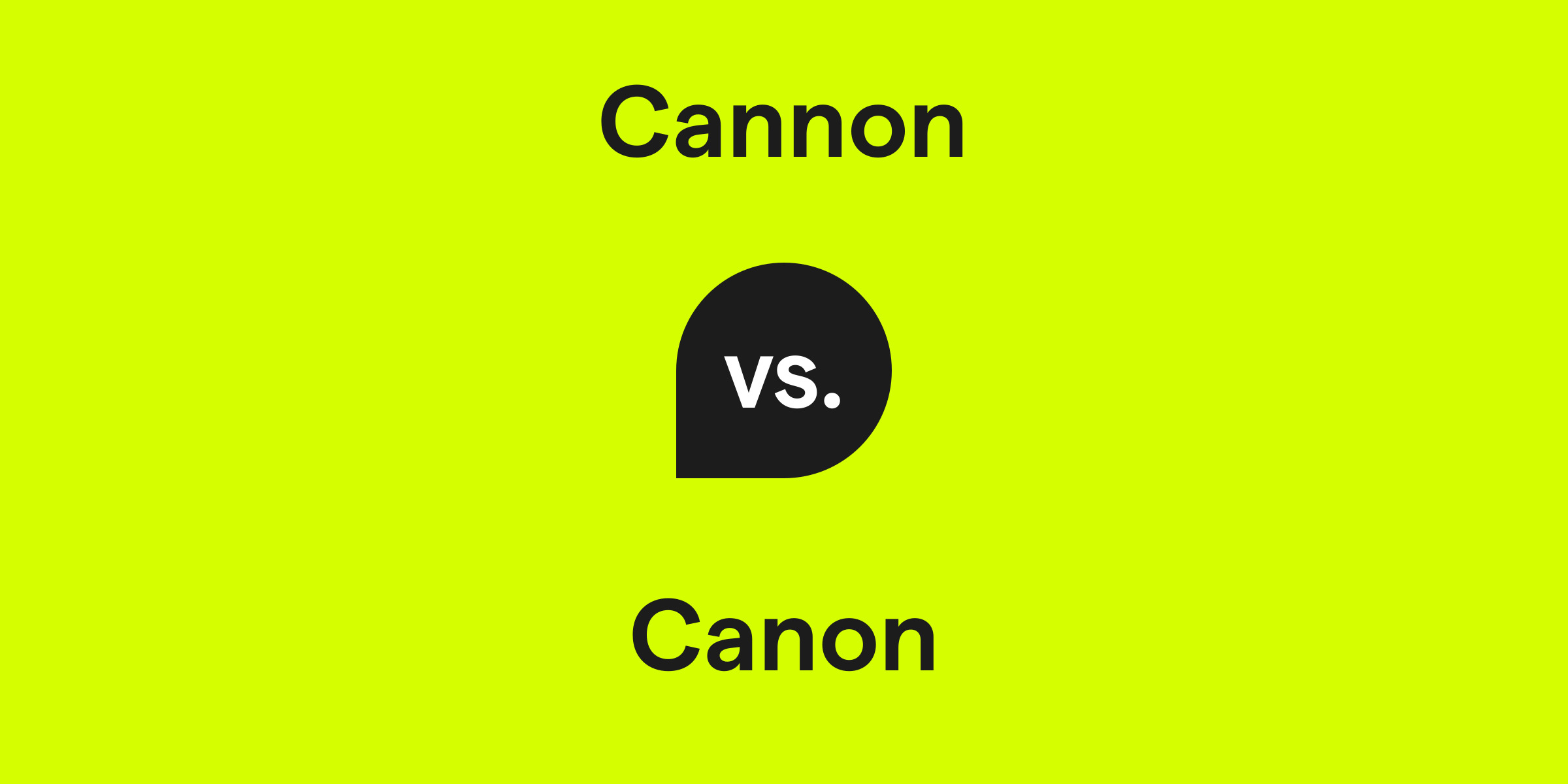Cannon vs. Canon: What's the Difference?
Cannon and canon are homophones, meaning they sound the same but have different meanings and spellings. A cannon refers to a large, mounted gun designed to fire heavy projectiles. It's often associated with military use and historical warfare. Canon, on the other hand, denotes a general law, rule, principle, or criteria by which something is judged, or a collection of works that are considered authentic, such as in a literary or artistic context.

How do you use the word cannon in a sentence?
Use the word cannon when referring to heavy artillery. It's appropriate in discussions about historical battles, military strategy, or in a metaphorical sense to describe something with great force or impact. Ensure that your sentence clearly conveys the context of weaponry or forceful impact.
Examples of cannon in a sentence
- The old fortress had a row of cannons on display, each with its history etched on a brass plate.
- In the debate, his rebuttal was so forceful it was like firing a cannonball across the room.
- During the reenactment, the cannon's boom startled the crowd, enveloping the actors in a cloud of smoke.
How do you use the word canon in a sentence?
The term canon is used to describe a body of works or laws that are accepted as authoritative. In literary discussions, it refers to the recognized masterpieces of a genre. In religious contexts, it pertains to the officially recognized set of texts. Canon is appropriate for conversations involving standards, principles, or an accepted collection of works.
Examples of canon in a sentence
- To be considered part of the literary canon, a book must have significant influence and be widely regarded as a masterpiece.
- The newly discovered texts were debated for inclusion in the religious canon at the council meeting.
- Fans of the series often argue about which storylines are considered part of the canon.
Cannon and canon definition, parts of speech, and pronunciation
Cannon definition:
A cannon is a large, heavy gun on wheels or a fixed mounting, typically used in warfare to launch heavy projectiles such as balls, shells, or bombs.
Cannon parts of speech:
Cannon pronunciation:
Cannon is pronounced as /ˈkæn.ən/. The emphasis is on the first syllable with a short 'a' sound.
Canon definition:
A canon is a general law, rule, principle, or criterion by which something is judged. It's also a collection of sacred books in biblical or religious contexts or an authoritative list of books considered to be important in a particular field.
Canon parts of speech:
Canon pronunciation:
Canon is pronounced as /ˈkæn.ən/, identical to cannon, with the stress on the first syllable and a short 'a' sound.
A cannon is a large, heavy gun on wheels or a fixed mounting, typically used in warfare to launch heavy projectiles such as balls, shells, or bombs.
Cannon parts of speech:
- As a noun: The museum's collection includes a civil war cannon that was recently restored.
- As a verb (less common): The enemy will cannon your defenses if you don't reinforce the walls.
Cannon pronunciation:
Cannon is pronounced as /ˈkæn.ən/. The emphasis is on the first syllable with a short 'a' sound.
Canon definition:
A canon is a general law, rule, principle, or criterion by which something is judged. It's also a collection of sacred books in biblical or religious contexts or an authoritative list of books considered to be important in a particular field.
Canon parts of speech:
- As a noun: The works of Shakespeare belong to the canon of English literature.
- As an adjective (less common): The canonical status of the new novel was hotly debated by scholars.
Canon pronunciation:
Canon is pronounced as /ˈkæn.ən/, identical to cannon, with the stress on the first syllable and a short 'a' sound.
Cannon vs. Canon in a nutshell
Though cannon and canon are pronounced the same, their meanings are worlds apart. A cannon is a weapon of war, a tool of destruction and defense. In contrast, the term canon embodies the idea of established standards or an authoritative body of works in literature, religion, or other fields. Recognizing the context in which each word should be used is key to proper application. Remember, cannon rolls out on the battlefield, while canon rules in the realms of culture and law.
Get AI Writing Assistance Wherever You Type
Make sure your vocabulary is on point and every punctuation mark is in the right place, no matter where you’re working. Grammarly works across more than 1 million websites and apps so you can improve your writing without copying, pasting, or breaking focus.

More Commonly Confused Words
Interest piqued? Pore (not pour) over other commonly confused words to help your writing reach peak (not peek) performance.